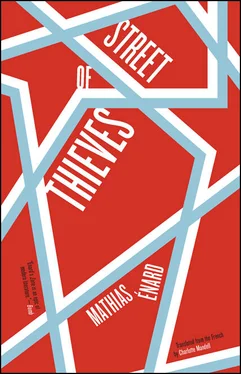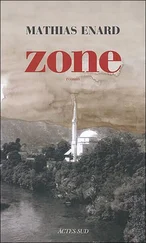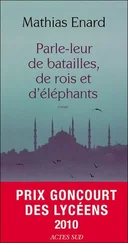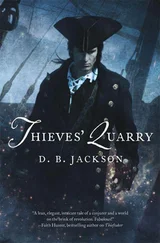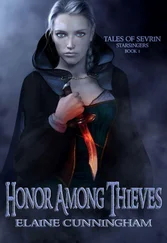Mounir thought that these attacks were secretly supported by the fascist extreme right to increase the hatred and mistrust of Islam and to justify the attacks on North Africans to come; I remembered the expression of Manchette in I forget which book, the two jaws of the same idiocy.
A sky of infinite blackness, that was what was waiting for us — today in my library, where the fury of the world has been muffled by the walls, I watch the series of cataclysms like one who, in a supposedly safe shelter, feels the floor vibrating, the walls trembling, and wonders how much longer he’ll be able to preserve his life: outside, everything seems to be nothing but darkness.
NO se puede vivir sin amar, that’s what I kept repeating to Judit, you can’t live without loving, I had found this phrase in a beautiful novel, dark and complex; she had to pull herself together, rediscover her energy, her strength, and I had only one desire, to offer her these glimmers, this fire of tenderness with which I was overflowing — offer it to her through books, through poems, through everyday gestures; I had let Meryem die, I didn’t want Judit to sink into her own darkness. I spoke to Elena about it, one day when we were walking together after class, through the strangely-named streets of Gràcia — Stream-of-Footlight Street, Flood Street, Danger Street — and she agreed with me, she could see that Judit wasn’t doing well, that she seemed more and more absent, reclusive, shut up inside herself; Elena had suggested they both go traveling together again, for the Holy Week, to go somewhere in the Arab world, to Cairo, why not, or Jordan, but no success — Judit replied that she didn’t want to ask her parents for money, her father owned a little construction company that had been flourishing before but was now on the verge of bankruptcy, and her mother, a university professor, had seen her salary reduced twice the year before. But I don’t think it’s matter of money, Elena said; it’s something else — nothing interests her anymore. Even Arabic, she keeps at it, as you see, but without passion. She stopped looking for graduate programs and translating schools for next year. She almost never goes out anymore, aside from with you from time to time. Last year we still went to clubs, to concerts, but now not at all. She got involved with the Okupas, she took part in meetings of the Indignants, she had a whole bunch of activities and today almost none. She still goes to classes, but that’s it. I feel like most of the time she stays locked up in her bedroom, she walks a little around the neighborhood, to get some air, and that’s it. Elena seemed sad and worried about her friend, all the more so since she didn’t see what could have provoked this change in attitude. When she got back from Tunis, she said, she spoke of almost nothing except you, the both of you, Morocco, the huge progress she had made in Arabic, and so on — and in the fall, it began going not so well; she was worried you didn’t write to her a lot, even though she knew of course that you were on your boat without Internet most of the time; little by little she got tired of the Indignants, she found their movement a little empty; the festive side of the Okupas movement bored her as well, she went less and less to the sit-in on the Plaça del Sol. In short, little by little, she stopped doing much, she sank into sadness.
That seemed exaggerated, to me, as a description, it was just a passing thing, I was sure.
As for me, even though I was happy with my setup in Barcelona, even though I liked my readings on the balcony, the life of the neighborhood, the Arabic classes, and everything I was discovering about life in Europe, languages, newspapers, books, my situation was not an easy one. They must still be looking for me for the Cruz affair, I couldn’t reasonably go see the cops to ask them about news of their investigation or explain to them that I had not (as they probably suspected) killed the gentleman: that meant I was stuck in Barcelona, locked up once again, but in a larger territory. This absence of future was a little heavy: I’d have liked to enroll in the university, but without a residence permit it wasn’t possible; and neither was working legally. I had to wait — I had in front of me a long wait of several years, so the police could forget me and for the economic situation in Europe could improve, which didn’t seem likely to happen anytime soon. Just as someone who has a slowly-progressing illness, almost painless in the early stages, readily forgets it in daily life, these questions didn’t torment me — at least not often. Cruz had joined the world of my nightmares, of my dead. From time to time I smoked some joints, in the middle of the night, when some too-horrible dream prevented me from falling back asleep: still the same themes, blood, drowning, death.
I missed Bassam’s smile when we watched the Strait, his cheery, laughing peasant-face.
With university ruled out, I tried to cultivate myself, to keep from wasting my time. I was aware that it was books that had procured the best jobs I had ever had, at the Propagation for Koranic Thought and with Mr. Bourrelier; I sensed confusedly that they gave me a painful superiority over my companions in misfortune, illegal like me — not to speak of an almost free pastime. Soccer and TV weren’t much more expensive, true, but I found it hard to get passionate about the saga of Barça, which had become, who knows why, the team of the Just and the Oppressed faced with the evil Whites of Madrid. I sometimes went with Mounir to watch a match in a bar — but without much enthusiasm.
I went to the library, read essays on the history of Spain, of Europe, I took notes in a big notebook; I tried to learn a little Catalan, I had a little notebook for vocabulary where I wrote words, fragments of sentences, verbs. God knows why, but Catalan seemed a very ancient language to me, a very old little language, spoken by medieval knights and merciless crusaders — maybe because of all those Xs and strange phonemes.
I also improved my Spanish and kept up my French, even if my kind of books were somewhat hard to find — I sometimes came across a few in used bookstores. I thought about buying an e-reader, but I hadn’t yet made up my mind. There were thousands of titles available for free online, all of French literature practically. It was tempting, even if according to my research there weren’t that many thrillers available. Under the pseudonym Eugène Tarpon, I took part from time to time in an online forum devoted to “Detective Literature”; I made virtual friends there who knew all the web’s thriller-resources.
So I was reasonably well occupied, the intellectual of the Street of Thieves.
At this rate, I’d soon be sprouting glasses.
ANDthen on March 29 th, the insurrection started, just as a pressure cooker left on the stove explodes when no one attends to it.
The day before, Mounir had brought me to a bar to watch Barça play Milan in the Champions League, 0–0, a pretty boring spectacle but pleasant company: there were four of us Arabs sitting at a table drinking beers, cracking jokes and snacking on patatas bravas, a nice time, even if the soccer fans would’ve liked to see some goals and a win for their team. What always impressed me in these soccer bars is that there were girls, pretty young women who wore the Barça jersey, drank beers straight from the bottle and yelled at least as much as the men, it was wonderful — we talked about them among ourselves in a lingo that was a mixture of Moroccan, Tunisian, French, and Spanish, which is the language of the future, a new language, born in the bars of the lower depths of Barcelona; we all agreed, laughing, that there was a lack of girls in our joints at home — that’s because we don’t know how to play soccer, said Muhammed, the Rif native with his Berber accent, when we have a club like Barça, we’ll have chicks drinking beers and watching the matches too. That’s how it is. The two go together.
Читать дальше
